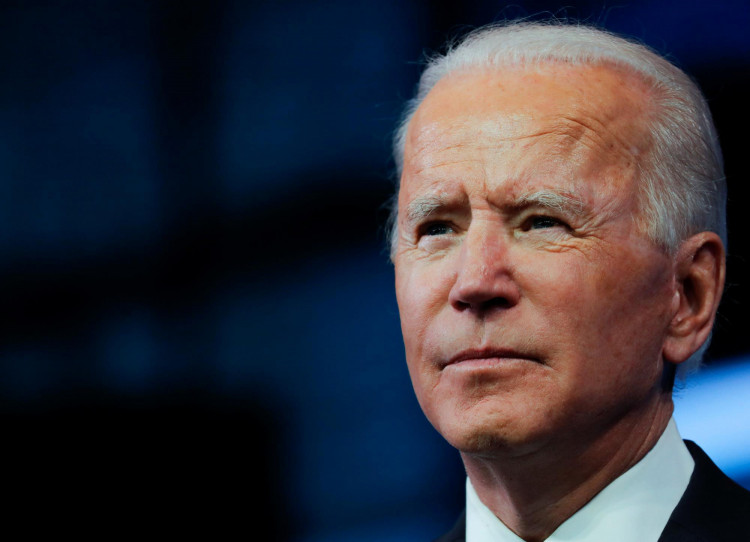Israel, amidst conflict, is set to welcome a visit from the U.S. President.
In the early hours of October 17 local time, U.S. Secretary of State Blinken announced in Israel that President Biden would arrive on the 18th. Later, National Security Council spokesperson John Kirby provided further details, stating that Biden would also visit Jordan and meet with leaders from Jordan, Egypt, and the Palestinian Authority. The primary focus of Biden's trip is to address the "urgent need for humanitarian aid in the Gaza Strip and ensuring innocent civilians receive assistance."
Israeli Prime Minister Netanyahu extended this invitation to Biden over the weekend. On October 16th, Eastern Time, Biden initially planned to travel to Colorado for domestic engagements. However, a few hours before departure, he postponed the trip, convened senior aides, intelligence officials, and advisors, and decided on a Middle East visit.
Many are skeptical about Biden's visit leading to a ceasefire in Israel. Regarding the trip, Kirby stated Washington "clearly doesn't want to see more civilian suffering," but the U.S. continues to "unconditionally" send weapons and other aid to Israel. Richard Fontaine, CEO of the think tank "Center for a New American Security," commented that Biden's visit would "further embrace and reaffirm the regime change in Gaza as the right choice."
Meanwhile, Israel Defense Forces' top spokesperson, Daniel Hegerly, indicated that the IDF would not delay its attacks on Hamas due to Biden's visit, emphasizing that the military is preparing "for the next phase of the war." Another IDF spokesperson mentioned that the next phase of action in the Gaza Strip might differ from public expectations, hinting at potential strategies beyond a ground invasion.
Observers believe that for the Biden administration, expressing firm support for Israel while avoiding international condemnation for overlooking Palestinian lives might be the primary diplomatic objective.
"Biden stands up for Israel, believing that dismantling Hamas is the right move, but he also wants to convey his humanity," said former U.S. Ambassador to Israel, Thomas R. Nides. "Biden believes he has moral authority here."
The humanitarian situation in the Gaza Strip is worsening. In an effort to "eradicate Hamas," Israel has cut off water, electricity, and food supplies, coupled with days of bombing. Israel is also preparing for a ground invasion. As of the 16th, local time, the Palestinian side reported 2,808 deaths and over 10,950 injuries. By the evening of the 15th, Israel had at least 1,400 deaths and 3,842 injuries.
In Western societies, the public is divided over the Israel-Palestine conflict. This divide is especially evident on U.S. college campuses. Students from institutions like Columbia University and Harvard University have taken sides, accusing each other of "bloodlust."
Globally, there have been marches supporting both Palestine and Israel. In recent days, pro-Palestinian supporters have marched in cities like Washington D.C., London, and Melbourne, calling for an end to the bombing in Gaza.
This potential shift in narrative has caught the attention of the U.S. government. Two anonymous Biden administration officials told The New York Times that the White House has noticed this "narrative shift" and has assessed it internally.
Biden's rhetoric supporting Israel has slightly changed. On the 15th, Biden publicly called for Israel to exercise caution for the first time on a TV program, warning that reoccupying Gaza "would be a significant mistake." He also mentioned the need for a Palestinian Authority and a path to Palestinian statehood.
However, despite the Biden administration's desire to alleviate the humanitarian crisis in Gaza, there has been no criticism of Israel's actions in cutting off utilities and food in the region. The UN and Arab nations have publicly condemned this blockade as a violation of international law, equating it to "collective punishment."
As the conflict continues and the humanitarian situation deteriorates, the UN is also divided. On the evening of the 16th, a resolution on the Israel-Palestine situation, submitted by Russia, failed to pass in the UN Security Council. The resolution, which condemned violence against civilians and terrorism, was criticized by some Western countries for not condemning Hamas.
The resolution required at least nine affirmative votes from the 15-member Security Council (five permanent and ten non-permanent members). In the end, it received five votes in favor (China, Russia, UAE, Mozambique, and Gabon), four against (U.S., UK, France, and Japan), and six abstentions.
After the vote, China's UN Ambassador Zhang Jun expressed "deep regret" that the resolution did not pass. He stated that humanitarian issues shouldn't be politicized and that protecting civilians should be everyone's priority.
Zhang Jun said that Russia's resolution, which focused on humanitarian concerns and protecting civilians, had the co-sponsorship of many countries, including Egypt, Saudi Arabia, Jordan, and Qatar. China will always stand on the side of peace, justice, and international law, working with the international community to quell the flames of war in Gaza, achieve peaceful coexistence between Israel and Palestine, and ensure long-term stability in the Middle East.





